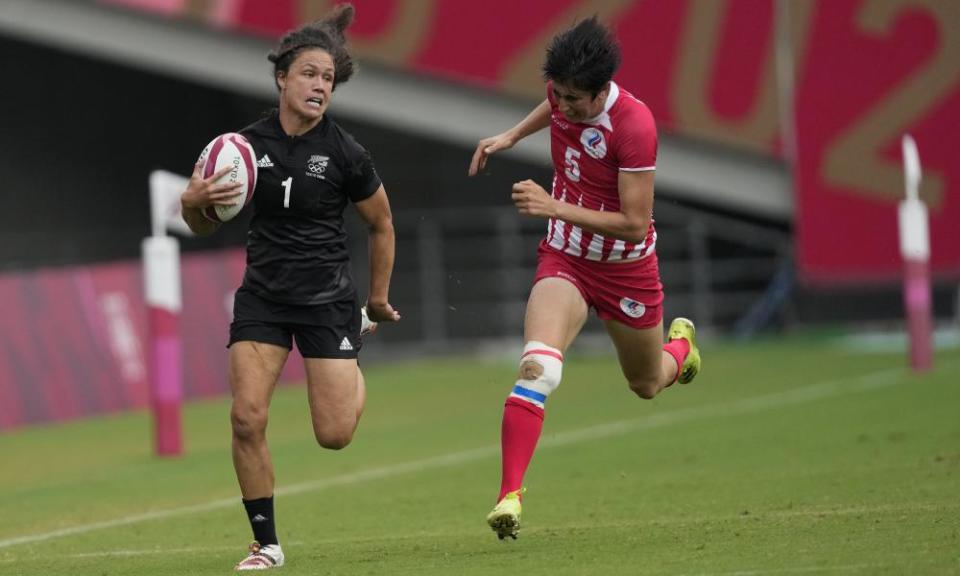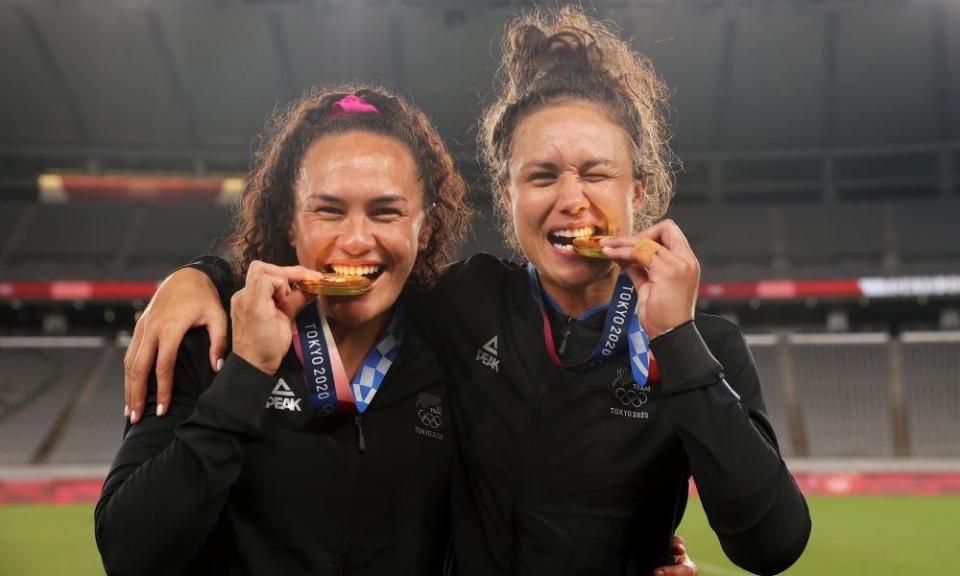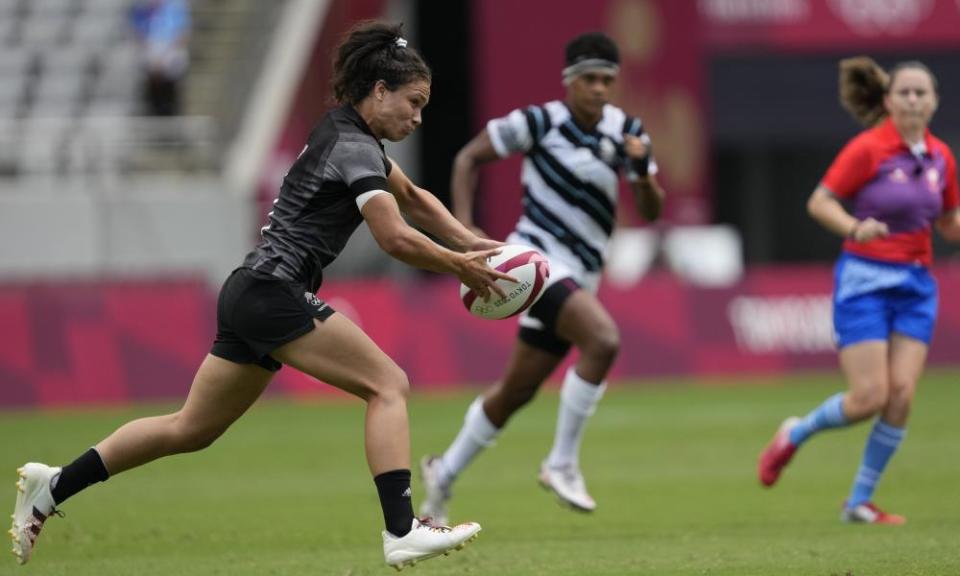From $20 boots to Olympics rugby gold: New Zealand’s Ruby Tui on her rise to the top

“It was a surreal, full-circle moment,” Ruby Tui says of playing to an empty stadium at the Tokyo Olympics.
Ten years ago, Tui picked up a pair of second-hand rugby boots with worn-down studs for $20 and played her first game.
Back then, the sidelines were nearly empty. Despite rugby being the national sport of New Zealand – and women’s teams dominating the international playing field – their efforts have been grossly under-recognised and under-supported.
Fast-forward to the Tokyo Olympics women’s rugby sevens finals: Covid-19 forced supporters to watch from afar, and the irony was not lost on Tui.
Related: Lisa Carrington is New Zealand’s greatest ever Olympian after third Tokyo gold
“We get to the top-of-the-top and again there were no crowds, it was pretty crack up,” she laughs.
The Black Ferns Sevens stormed to their first Olympic gold, beating France 26-12.

Their historic win catapulted the team into the country’s Olympics hall of fame, and Tui’s sense of humour and affability fast sealed her place as a contemporary sporting icon.
But the road to get there was not always easy.
The 29-year-old was born in Wellington to a Samoan father, and a mother with Scottish and Irish ancestry. Her parents split up when she was a child, and she spent the next few years moving with her mother from one remote town to another. At age thirteen, Tui, her mother and young brother were forced to flee her mother’s partner, and seek safety at a women’s refuge in Westport, in the South Island.
Tui does not shy away from telling this part of her life story.
“I thought it was just normal for [parents] to fight every day for hours and it’s not at all. I always talk about it because I think it is important for a kid to know that that’s not the rest of their life.”

Leaving the relationship meant Tui’s mother could put down roots, and for the first time Tui stayed in one school and finished out her high school years, allowing her to throw herself into “every sport under the sun”.
Tui moved to Christchurch after high school to study, with dreams of becoming a professional netball player for the Silver Ferns. But getting to netball training across the city cost money she did not have.
While contemplating the fate of her netball dreams she saw, out of her student accommodation window, women playing on the rugby field below.
After expressing interest, Tui was invited to play, so she donned her newly acquired boots and joined a team.
“It was so welcoming, they were so grateful for anyone to come along, even if you couldn’t catch.
“Then I found out that in my team there were Black Ferns and I was like ‘holy shit!’”
“I really wanted to do netball, but rugby was so fun … and then I went to the Olympics and won gold,” she says, with glee.

The women’s rugby culture may have drawn her in, but the game itself kept her hooked.
“No one is pretending. The whole point is to smash and crash your way over the try line.”
When she discovered rugby sevens, she wondered why she had not been doing it her whole life.
“I fell in love straight away.”
The fundraising requirements to get the women’s sevens to matches were demanding at the time, Tui says, but she credits it for helping her stay humble.
She has played in two Olympic finals. At the Rio Games, the team came achingly close to winning gold but missed out and returned home with silver. This year’s gold medal helped heal that heartbreak.
Related: Laurel Hubbard’s Olympic dream dies under the world’s gaze
“It’s hard to describe that moment. It’s not just what you put yourself through, but what you put your loved ones through, and in that moment we felt it all.”
A number of Tui’s teammates lost family members in the months prior to the games, adding emotional strain to an already gruelling lead-up period.
“[Winning] was a positive moment out of so much negative. It was a very emotional moment, but one of the most beautiful emotional moments I’ve ever had, because you felt everything in one go.”
Tui credits her loved ones for getting the team to gold and wants to thank anyone who has ever turned out to watch women’s rugby.
“It means so much to us and not just for me, it’s generational, they are changing not just our lives but the lives of teams to come.”
Tui is looking forward to getting out of managed isolation and celebrating her win with her partner Dani Fennessyand her family.
“This whole journey is not complete until we get to hug all our family, all our friends and put the gold medal around their neck as well. That’s number one on all of our lists.”

 Yahoo Sport
Yahoo Sport 





































